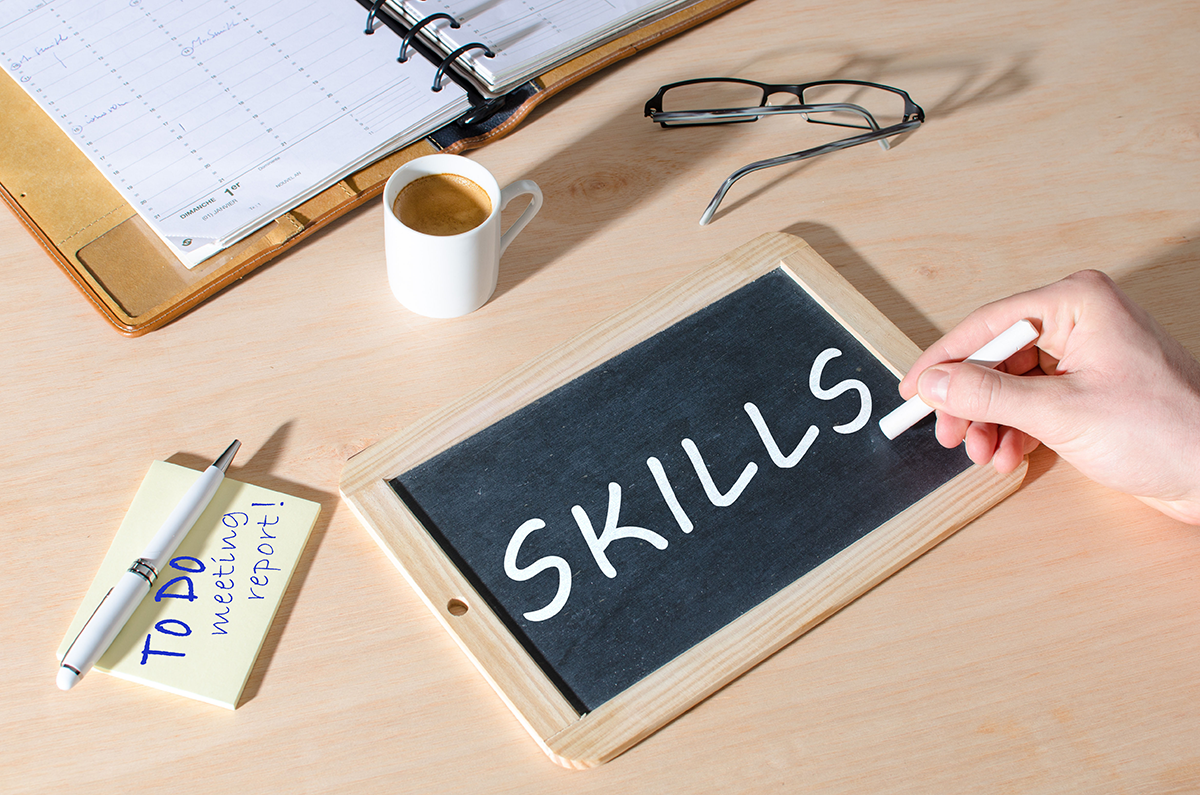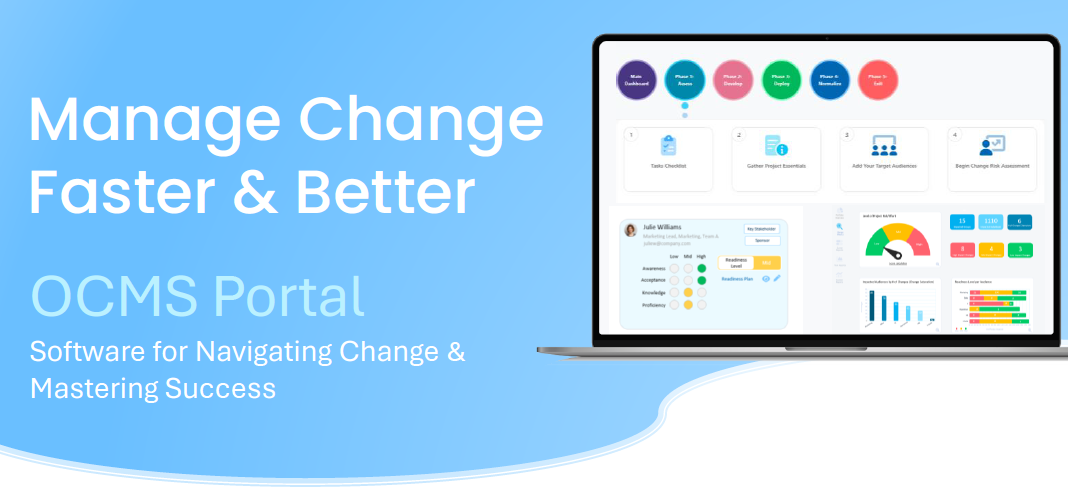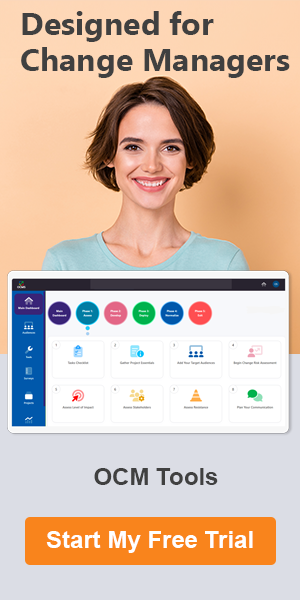Skills All Change Management Gurus Should Cultivate
When it comes to organizational initiatives, change isn’t just a ripple—it’s a seismic shift. Whether it’s a digital transformation, a cultural overhaul, or a strategic pivot, navigating change is no easy feat. It requires careful planning, strategic vision, and adept leadership.
At the forefront of this challenge are change managers, the unsung heroes who orchestrate transformational journeys and guide organizations through turbulent waters.

We’ll explore the art of mastering change—a journey that delves into the essential skills of change practitioners, the duties of change management leadership, and the pivotal role these professionals play in shaping the future of organizations.
Watch a summary below:
Story Highlights
|
Who is a Change Manager?
A change manager is a strategic partner who helps organizations plan, implement, and sustain change initiatives. They act as facilitators, guiding stakeholders through transitions, minimizing disruption, and maximizing the benefits of change.
Other names that you may hear for a change manager are:
- Change practitioner
- Business change manager
- HR change manager
- Change management lead
Change managers wear many hats. They are skilled communicators, adept at explaining complex processes clearly and concisely. They are also strong collaborators, fostering cross-functional teams and building consensus. Furthermore, business and HR change managers possess a keen understanding of human behavior, can anticipate resistance, and develop strategies to address it.
Do you have any questions about change manager HR roles or typical change management duties? Please reach out and let us know.
The Evolving Role of Change Managers
A change management practitioner and their team provide support to a project manager their team. They handle the “human” side of change. In other words, the change management job description includes helping the people being impacted by a project to successfully adopt the necessary changes so the project is a success.
The role of a change manager has evolved significantly. Gone are the days of top-down, directive approaches. Today’s business change managers practice a more collaborative and people-centric approach. They understand that successful change relies on engaging stakeholders, addressing concerns, and fostering a sense of ownership amongst employees.
Key Change Management Duties
A typical change manager job description includes a range of responsibilities aimed at facilitating successful change initiatives. These change management roles and responsibilities may include the following.
Developing Change Strategies
Change management leadership is responsible for developing comprehensive change management strategies tailored to the specific needs of each initiative. This involves assessing the impact of the change, identifying potential barriers, and developing plans to mitigate risks.
Stakeholder Engagement
Effective communication and stakeholder engagement are essential for successful change management. Change management gurus must engage with stakeholders at all levels of the organization to build support, address concerns, and ensure buy-in for the proposed changes.
Change Planning and Execution
Another of the roles and responsibilities of a change manager is to oversee the planning and execution of change initiatives, including creating project plans, defining timelines, and coordinating activities across teams. They monitor progress, identify issues, and make adjustments as needed to keep the project on track.
Training and Development
HR change managers often play a role in training employees on new processes, systems, or behaviors associated with the change. This may involve developing training materials, conducting workshops, or providing one-on-one coaching to support skill development.
Monitoring and Evaluation
Once changes are implemented, change management gurus are responsible for monitoring their impact and evaluating their effectiveness. This may involve collecting feedback from stakeholders, analyzing performance metrics, and making recommendations for further improvement.
If you have any feedback or questions about being a change management practitioner, change manager HR professional, or change leader, please reach out, we’d love to hear from you.
Essential Skills for Change Management Gurus
Change management duties can encompass several different activities, depending on the organization and project. For example, some change management leadership is very hands-on, handling initiatives from start to finish. Other change management roles are more of a consultant to project teams, helping them with a change management process, guidance, and recommended OCM tools.
But for all these varied change manager responsibilities, the same essential skills are leveraged to guide organizations through transitions. Here are several key skills vital to navigating the complexities of change management effectively.
1. Communication and Storytelling
Change managers are masters of communication. They can explain complex concepts in a clear, concise, and engaging manner. They leverage different communication channels – town halls, emails, video messages, online forums – to ensure everyone receives the information they need.
Furthermore, strong change management leadership understands the power of storytelling. They weave compelling narratives that explain the “why” behind change and connect with employees on an emotional level.
2. Collaboration and Relationship Building
Change rarely occurs in a silo. Change managers excel at fostering collaboration across departments and building strong relationships with key stakeholders. They actively listen to diverse perspectives, identify common ground, and build consensus around the change initiative as part of their change manager job description.
3. Project Management and Organizational Skills
Change initiatives are complex projects. Effective change management leaders possess strong project management skills, able to plan, organize, and execute change initiatives effectively. They can manage budgets, resources, and timelines while keeping all stakeholders informed of progress.
4. Understanding of Human Behavior and Resistance Management
Change can be disruptive, and people naturally don’t like to change. Strong change management practitioners understand how people react to change and are equipped to address change resistance. They utilize techniques like active listening, empathy, and addressing concerns to guide stakeholders through challenges.
5. Training and Development Expertise
Equipping employees with the knowledge and skills necessary to navigate change is crucial, and it’s another of the change management duties. Change managers are often responsible for developing training programs tailored to the specific needs of the change initiative. They conduct training needs assessments and partner with subject matter experts to ensure training content is relevant and engaging.
6. Analytical and Problem-Solving Skills
Change management is not always linear. Change managers must be prepared to adapt their strategies as challenges or setbacks arise. Strong analytical skills allow change management leadership to identify potential risks and develop contingency plans. Additionally, effective problem-solving skills enable them to find solutions to unforeseen obstacles throughout the change process.
7. Change Management Frameworks and Methodologies
Several change management frameworks and methodologies can be applied to guide change initiatives. Understanding these frameworks equips business change managers with a structured approach to planning, implementing, and evaluating change. Popular frameworks include the OCMS Change Management Framework, ADKAR, and Kotter’s 8-Step Change Model.
8. Adaptability and Continuous Learning
The world of change management is constantly evolving. New technologies emerge, and best practices continuously develop. Effective business and HR change managers are lifelong learners, adapting their skills and knowledge base to remain relevant and efficient in this dynamic environment.
Let us know if you still have any questions about a change manager HR professional, or change management roles. We’ll be happy to help!
Conclusion: Change Management Duties & Essential Skills
Change management is a dynamic field that offers a fulfilling career path for individuals who thrive in fast-paced environments. By mastering the essential skills outlined above, you can become a strong and effective change manager who helps organizations navigate transitions successfully.
Remember, change management is not about dictating change; it’s about facilitating a collaborative process that fosters engagement, minimizes disruption, and ultimately unlocks the full potential of your organization.
Manage Change Successfully with OCMS Portal
OCMS Portal is an all-in-one change management platform with a built-in framework that walks you through the change management process. It includes tools, guidance, and analytics that match many of the roles and responsibilities of a change manager.
(no credit card needed)
FAQ: Change Management Roles & Skills
Who is a change manager or change practitioner?
A change manager is a strategic partner who helps organizations plan, implement, and sustain change initiatives. Change manager responsibilities include being facilitators, guiding stakeholders through transitions, minimizing disruption, and maximizing the benefits of change.
What are some essential skills included in the change manager job description?
Some of the critical skills included in change management roles include:
1. Communication and Storytelling
2. Collaboration and Relationship Building
3. Project Management and Organizational Skills
4. Understanding of Human Behavior and Resistance Management
5. Analytical and Problem-Solving Skills
Is there a change management software to help with the roles and responsibilities of a change manager?
Yes. There is a popular all-in-one change management software called OCMS Portal. It includes all the tools change management gurus need and a built-in framework to guide them through the process of managing change for an initiative. Learn more: https://www.ocmsolution.com/ocms-portal/
Note: Content on OCM Solution's ocmsolution.com website is protected by copyright. Should you have any questions or comments regarding this OCM Solutions page, please reach out to Ogbe Airiodion (Change Management Lead) or the OCM Solutions Team today.
External Sources: stock.adobe.com





